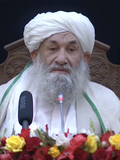| |||||
| Decades: | |||||
|---|---|---|---|---|---|
| See also: | Other events of 2022 List of years in Afghanistan | ||||
Events in the year 2022 in Afghanistan.
According to the United Nations Development Programme, by 2022, 97% of Afghans could fall under the poverty threshold, which would plunge the country into a major humanitarian crisis. [1]
Contents
- Incumbents
- Events
- Ongoing
- January
- February
- March
- April
- May
- June
- July
- August
- September
- November
- December
- See also
- References
After the Fall of Kabul, in which the Islamist Taliban drove out the Islamic Republic of Afghanistan government after its 20-year rule, the Taliban promised to set up a new constitution for Afghanistan. The constitution is intended to be adopted in 2022. [2] [3]
The Islamic State continue their insurgency, carrying out many bombings. Afghanistan is also badly affected by earthquakes and flooding.









